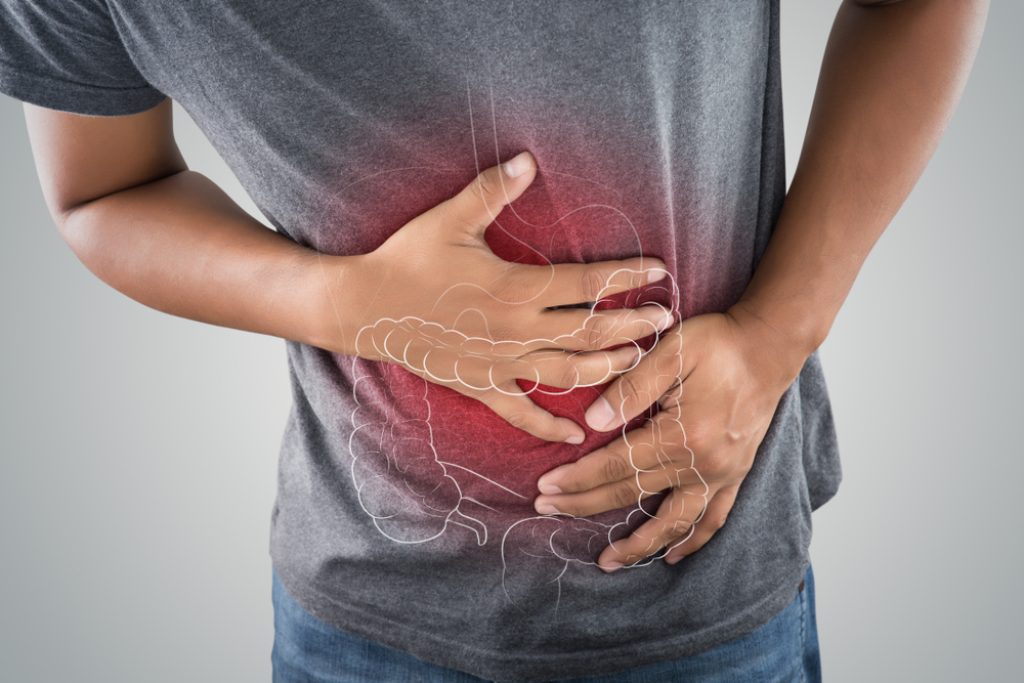
Earliest Colon Cancer Symptoms
Colon cancer, like many other cancers, develops gradually. But what makes colon cancer extra worrisome is that it usually doesn’t cause any obvious symptoms in the beginning. Therefore, it often goes undetected until it’s already in a more progressed stage. The larger majority of colon cancer patients are aged 50+.
Related Topics (Sponsored Ads):
According to the American Cancer Society, colon cancer is the third most common type of cancer in the US alone. It is caused by a genetic defect in the colon cells, which results in abnormal division of the cells. The colon is the final part of the digestive tract. In the earliest stage, small benign polyps develop on the inside of the colon. As time goes by, if these polyps are not detected via colonoscopy and surgically removed, one or more of these polyps can become cancerous. Thankfully, if the cancer does develop somewhere in the colon, there are several treatments available to help keep it under control, such as surgery, radiation therapy and drug treatments, chemotherapy, targeted therapy and immunotherapy.
The earlier it’s detected, the easier it will be to treat and beat. So it’s highly advised to get tested for it at least a few times a year, especially if you have reached senior age.

Risk Factors
There are many factors that can increase your risk of developing colon cancer, including smoking tobacco, having diabetes, being very overweight, genetics, poor diet, sedentary lifestyle, excessive alcohol consumption, and quite ironically, radiation therapy meant to treat other forms of cancer.
The symptoms of colon cancer also vary in each individual, depending on the overall size of the cancer and the specific location in the colon in which it’s developed. What complicates matters even further is that the symptoms of colon cancer can also arise from other conditions that can occur in the colon and rectum, such as irritable bowel syndrome, hemorrhoids, crohn’s disease, infections, ulcerative colitis and inflammatory bowel disease. Moreover, if left untreated for an extended period, it can spread to other areas of the body, such as the liver. If this happens, jaundice is likely to occur.
Listed below are some of the possible early symptoms of colon cancer that require immediate medical attention.
Rectal Bleeding And Bloody Stools
While hemorrhoids can cause bleeding in the rectum when you defecate, if you notice that your stools are way darker than usual in addition to the rectal bleeding, then this is one of the most common signs and symptoms of colon cancer.
Furthermore, pay close attention to the stools- they may change in shape and consistency. For example, they may be abnormally loose and narrow.
Chronic Lower Abdominal Pain
We all tend to feel gassy, bloated, crampy or constipated from time to time due to various causes or ailments, such as an unbalanced diet, stomach ache, menstrual cramps, eating too much, etc.
However, if the lower abdominal aches and pains persist without any other apparent explanation or cause, then it could be colon cancer and needs to be tested by a doctor as soon as possible.
Abnormal Weight Loss And Chronic Fatigue
If you’ve recently started following a healthier diet and increased your daily exercise, then some weight loss is to be expected. But if you haven’t made any changes and you’re experiencing significant weight loss, then it’s imperative to get it checked out. While there are many conditions that can cause abnormal weight loss, such as stomach parasites, malnutrition and many others, colon cancer is definitely a possibility.
Colon cancer can also cause fatigue that impacts our day to day life, partly because the colon isn’t absorbing nutrients as well as it should, and also due to the following symptoms listed below.
Irritable Bowels And A Persistent Urge To Defecate
If you have colon cancer, you may suffer from typical symptoms of irritable bowel syndrome- chronic constipation, inconsistent bowel movements or diarrhea. Additionally, you may also experience a persistent urge to defecate. You’ll feel the need to visit the restroom very often, which is very taxing on your energy and time.
Anemia- Iron Deficiency
Colon cancer may cause your colon to bleed to such an extent that you can develop anemia as a result. Anemia makes you feel weak and fatigued. This symptom is especially common in females, due to their monthly menstrual cycle.
This is why, if you have been diagnosed with colon cancer and anemia simultaneously, it’s imperative to eat foods that are rich in iron to improve your iron levels- such as red meat, leafy greens, red wine, nuts, beans, fortified breakfast cereal and liver. Alternatively, you can also get your daily dose of essential iron from dietary supplements.
Final Thoughts
Colon cancer is no trivial matter, as it can eventually be lethal without proper treatment. The good news is, it’s very treatable, especially if it’s caught early enough. So, if you have been experiencing any of these symptoms or others and have ruled out other possible causes, then do not delay. Schedule an appointment for a rectal exam as quickly as possible.
As previously mentioned, it’s vital to get screened and tested for colon cancer periodically to catch it in the earliest stages so that it’s easier to treat. Also, be sure to discuss the various treatment options with your doctor to determine which one is best for you.




